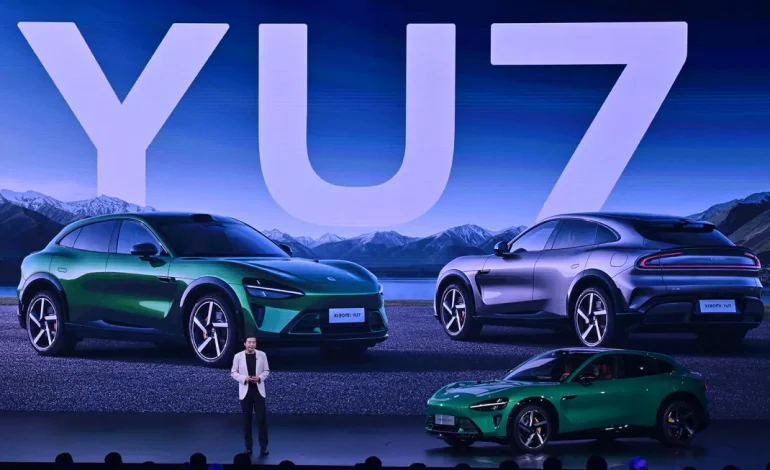Xiaomi, the Chinese electronics giant best known for its budget smartphones, is accelerating efforts to diversify its product offerings with the unveiling of a high-performance electric SUV and a cutting-edge smartphone chip, CNN reports.
The announcements mark a strategic shift as the company seeks to compete with major global players like Tesla and Apple.
At a livestreamed event in Beijing celebrating Xiaomi’s 15th anniversary, CEO and founder Lei Jun introduced the YU7, the company’s first electric SUV, along with the Xring O1, a self-designed 3-nanometer smartphone chip. Both products reflect Xiaomi’s intent to move beyond its image as a budget brand and establish itself as a leader in premium technology and innovation.
The YU7, slated for release in July, boasts a maximum range of up to 835 kilometers (518 miles) on a single charge and claims acceleration from 0 to 100 km/h in just over three seconds—figures that Lei said exceed Tesla’s Model Y and comparable Porsche models. Standard variants will come equipped with Xiaomi’s advanced driving assistance system, although pricing and pre-order details were not disclosed at the event.
The launch comes on the heels of a fatal accident involving Xiaomi’s first EV, the SU7 sedan, in March. The crash, which killed three people, raised questions about the company’s self-driving technology and resulted in a short-term decline in sales. Xiaomi has since emphasized safety as a priority in its automotive development.
Alongside its push into electric vehicles, Xiaomi is making significant investments in semiconductor design. The Xring O1 chip—manufactured by Taiwan Semiconductor Manufacturing Company (TSMC)—will debut in Xiaomi’s new 15S Pro smartphone and is positioned to compete with Apple’s A18 Pro chip. Lei claimed Xiaomi’s chip performs better under thermal stress, particularly during intensive gaming sessions.
The chip development is part of a broader effort to reduce dependence on foreign suppliers like Qualcomm and MediaTek, and follows a vertically integrated strategy similar to Apple’s. Xiaomi plans to expand the use of its proprietary chips across its product line, including smartphones and tablets.
Developing high-end chips is a milestone for any tech company, and Xiaomi’s achievement places it ahead of rival Huawei, which continues to struggle under U.S. sanctions and cannot collaborate with TSMC. In contrast, Xiaomi remains free to partner with the world’s most advanced chip foundry.
Lei revealed that Xiaomi has invested 13.5 billion yuan (approximately $1.87 billion) in chip R&D to date, with plans to commit up to 50 billion yuan ($7 billion) over the next decade. The company currently has a 2,500-member team dedicated to chip development and expects to invest at least 6 billion yuan ($833 million) this year alone.
State media have celebrated Xiaomi’s progress. CCTV called the chip a “breakthrough,” and the People’s Daily praised it as evidence of China’s private sector pioneering innovation amid global uncertainty.
These developments also align with China’s broader goal of reducing reliance on foreign technology, especially in sectors like semiconductors and new energy vehicles. As geopolitical tensions with the United States continue, Beijing has pushed for self-sufficiency in critical tech infrastructure.










The latest news in your social feeds
Subscribe to our social media platforms to stay tuned